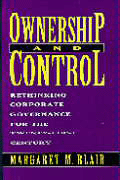During four decades of experience with nuclear weapons, public awareness and discussion have focused on their basic properties and capabilities—the explosive power they contain, the technical capabilities of the missiles and aircraft that carry them, the size of the Soviet and American arsenals, and the magnitude of destruction those arsenals could accomplish. Yet little attention has been paid to the technologies, procedures, and organizational arrangements used to manage and control nuclear forces. Many assert the importance of “command, control, communications, and intelligence” (C3I), but serious and detailed studies supporting that assertion are few.
Managing Nuclear Operations provides a comprehensive and detailed examination of U.S. Nuclear operations and command and control. The contributors, experienced in operations and C3I., discuss peace-time safety and control of nuclear weapons worldwide, the survival under nuclear attack of the reasonable command authorities presupposed by deterrence theory, and the means for terminating nuclear war before it escalates to all-out exchanges. They describe command posts, warning sensors, communications technologies, the selection of nuclear targets, and the exercise of political authority over nuclear operations. The decisionmaking process of command and control is examined, as are the various perspectives of the decisionmakers.
Related Books

Margaret M. Blair
June 1, 1995

Federiga Bindi, Irina Angelescu
August 18, 2011
Author
Ashton B. Carter is associate professor of public policy at the John F. Kennedy School of Government, Harvard University, and the coeditor (with David N. Schwartz) of Ballistic Missile Defense (Brookings, 1984); John D. Steinbruner is director of the Brookings Foreign Policy Studies program and coeditor (with Leon V. Sigal) of Alliance Security: NATO and the No-First-Use Question (Brookings, 1983); Charles A. Zraket is president and chief executive officer of the MITRE Corporation.
